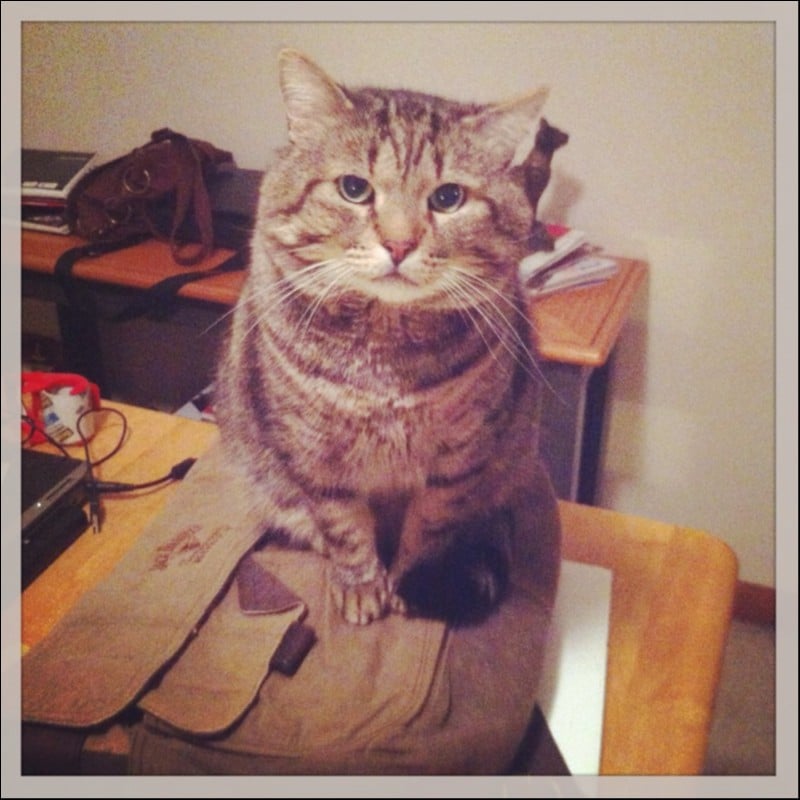
Finally, some good news for FIV (the feline immunodeficiency virus) positive kitties and those who love them: Dr. Annette L. Litster of Purdue University’s College of Veterinary Medicine conducted a long-term study which shows that FIV+ cats can live with negative kitties without infecting them and that mothers infected with FIV do not pass their virus on to their kittens.
This is big news to shelters and many veterinarians who regularly recommend infected cats be killed, but not for those who love and care for FIV+ kitties. Even those shelters who do accept special care kitties like those with FIV often recommend that they only be adopted into homes with other positive kitties or that they be the ‘single’ cat for a family. This study clearly shows that there’s no need for these precautions.
As someone who has cared for a FIV+ kitty for many years and whose vet not only deals regularly with FIV+ kitties, but has one of her own, I can bear out the truth in these numbers. Not only have I never personally seen a FIV+ cat pass their infection on to another cat through day-to-day space sharing and interactions, but I’ve never heard of it being done from anyone else who cares for these cats. FIV is hard to transmit. Infection is primarily confined to male, free-roaming cats who fight and is transmitted through deep bites. Casual “play” bites that you see from cats who are housemates do not lead to infection. FIV is not spread by sharing food dishes, grooming, or other close interactions.
Although the two are often confused, FIV (feline immunodeficiency virus) is a very different disease from FeLV (feline leukemia virus) which is easily transmitted through casual contact. These two diseases are retroviruses. Both affect the immune system, but the feline immunodeficiency virus does not easily cross the mucous membranes. This means that a cat can’t catch FIV through things like sharing a water dish or grooming another kitty.
FIV kitties can, but don’t always, require extra care. Basically, a FIV+ cat has a compromised immune system. That can mean that they catch things like colds more easily, but it doesn’t always. I’ve known FIV+ kitties who have lived very long lives (18+ years) without any complications. FIV+ cats need to avoid stress and have a healthy diet and exercise (as do all kitties). They can be prone to respiratory and gastrointestinal issues, as well as dental health issues so they need regular teeth cleanings. But their overall health risk is no greater than that of certain breeds of cats with genetic predispositions to certain illnesses. Best Friends Animal Society, who has a great deal of experience with special needs cats of all kinds, has recommended mixed households with FIV+ and negative kitties for many years.
Hopefully, these new and highly publicized findings will make the world brighter for kitties with FIV and give them the same chance of adoption as other cats. So, if you fall in love with an FIV+ kitty at a shelter or a cat that you are caring for tests positive, please don’t hesitate to give them a home with your other cats. And please spread the word that FIV+ kitties deserve a chance to live to your friends, family, and other cat-care providers!




